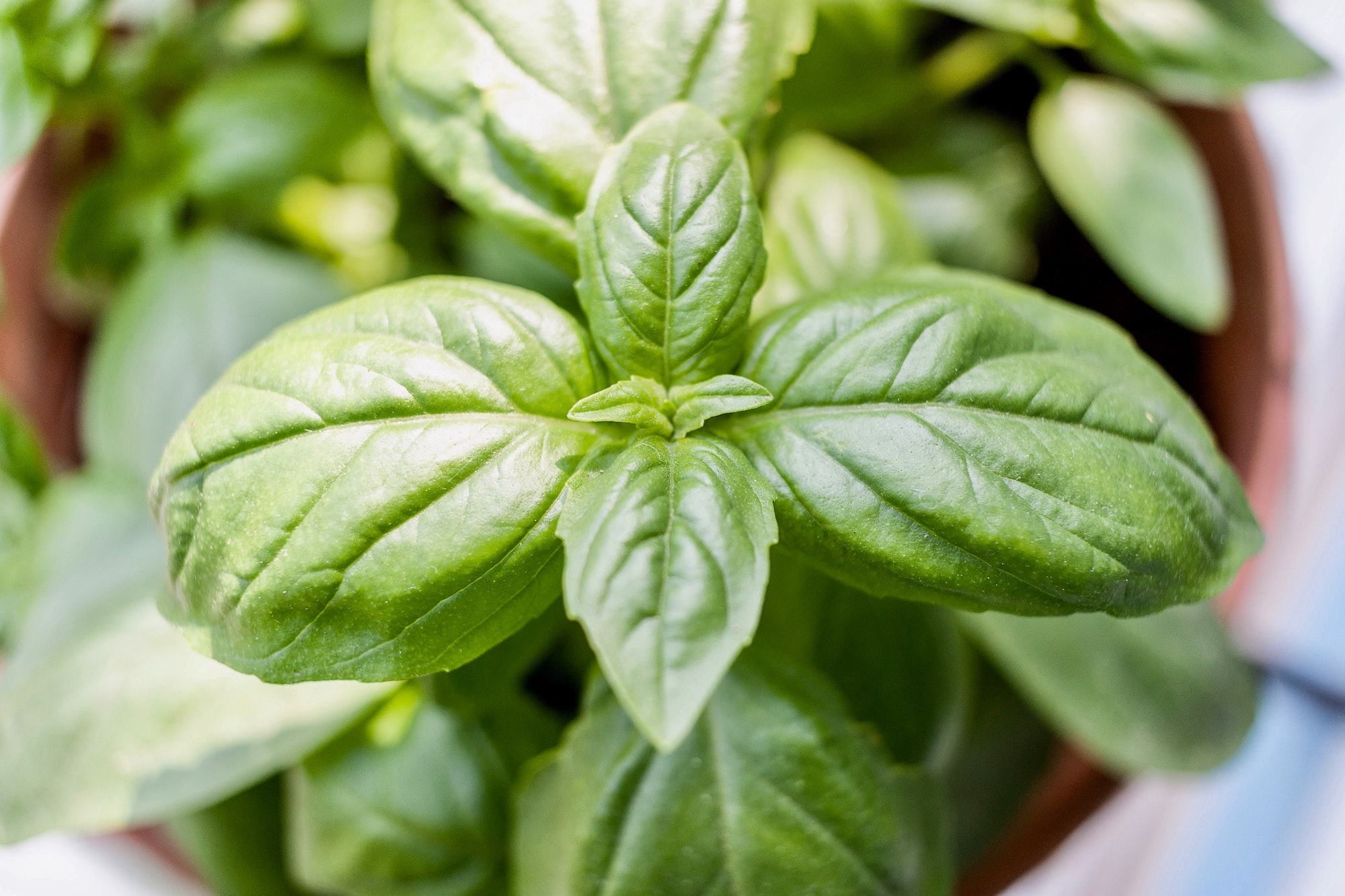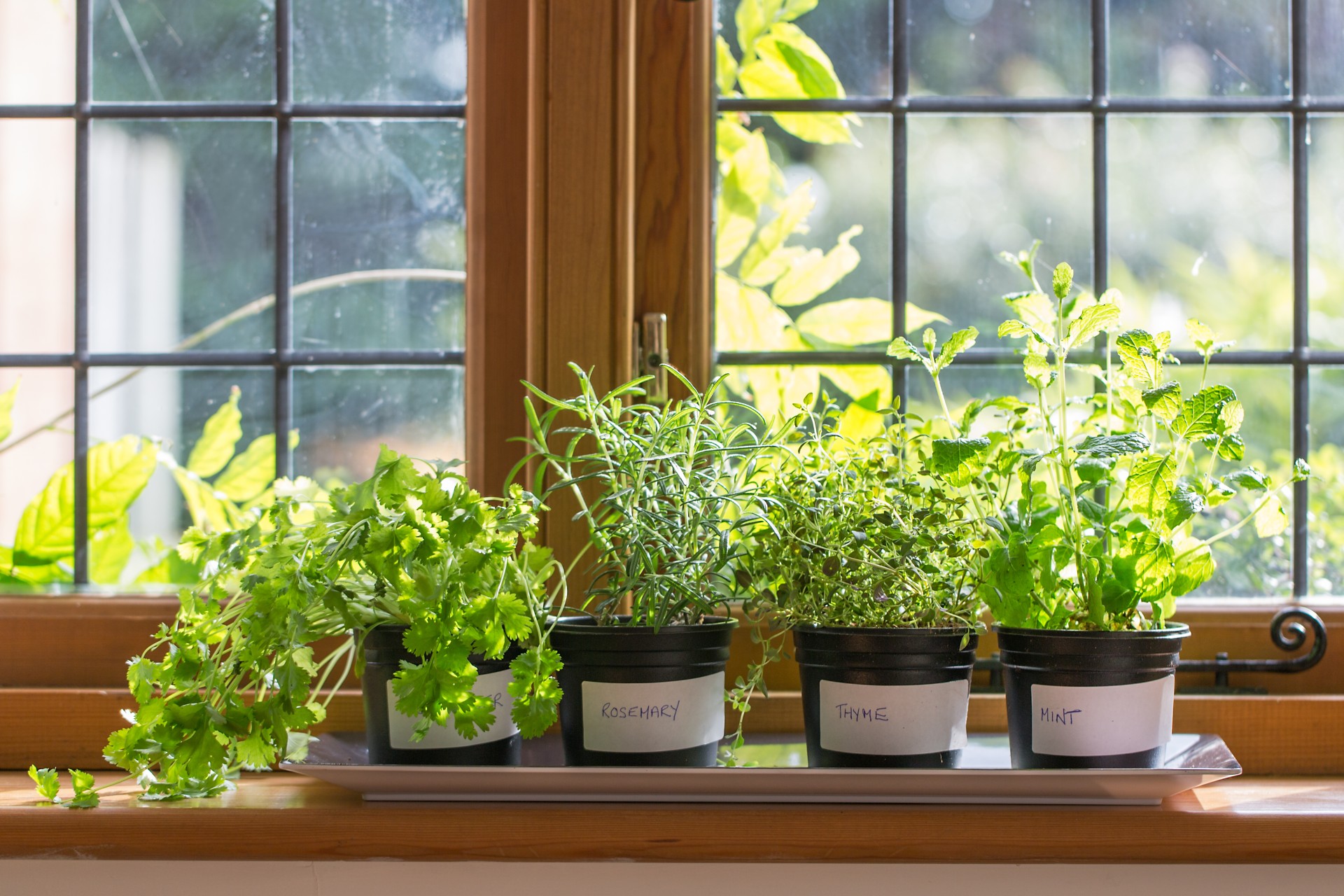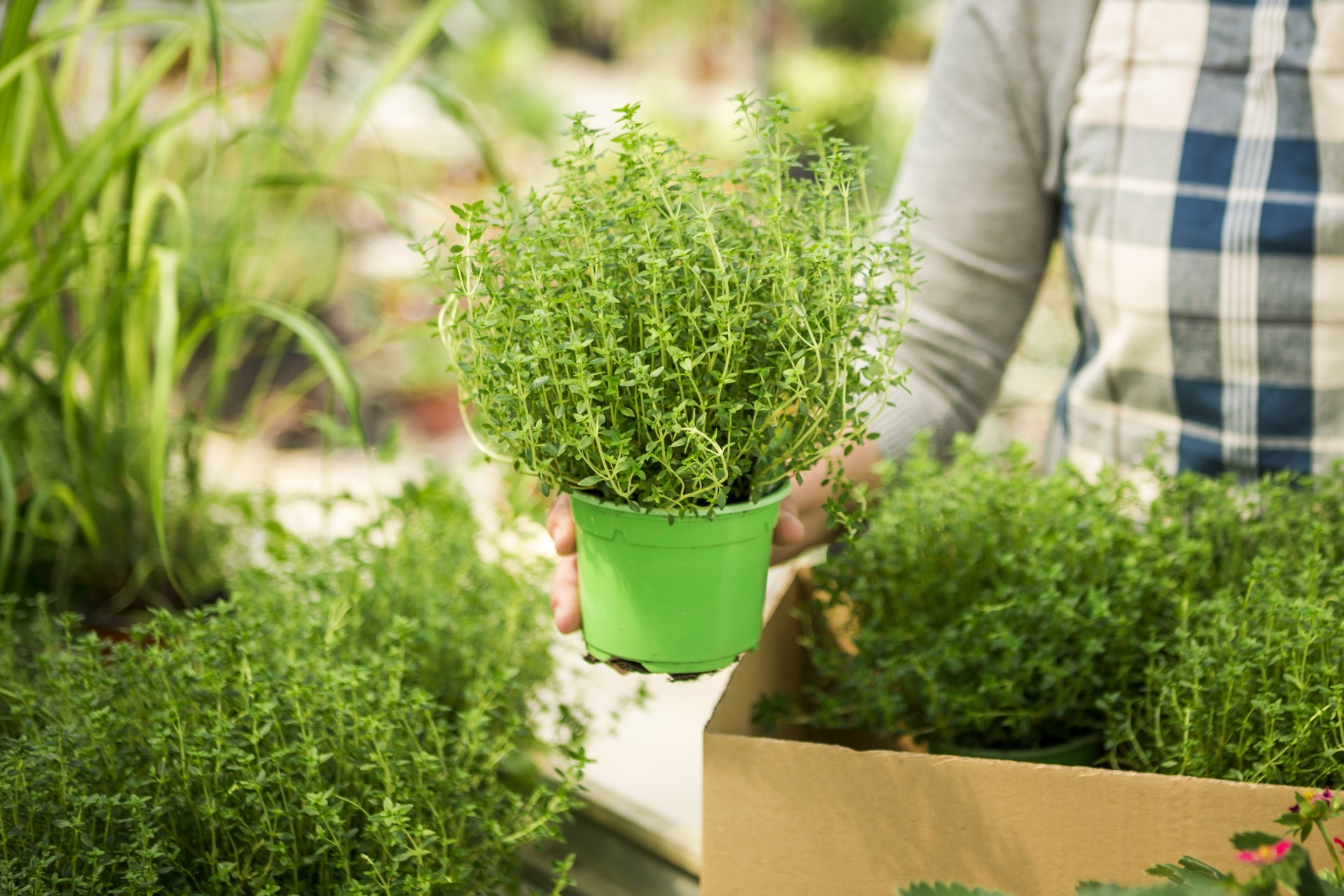An herb garden is a lively, practical addition to almost any deck. Container gardening involves less plant maintenance, as weeds are usually nonexistent. Potted plants can be easily transported as needed. And a well-planned herb garden can serve as attractive decor. Here are answers to common questions relevant to herb gardens.
Contents
- Which herbs do well in small pots?
- What types of pots are best for herbs?
- How should an herb garden be cared for?
- Can I plant vegetables along with my herbs?
- How to keep pots from staining your deck
- Are herbs better grown in pots or in the ground?
Which herbs do well in small pots?

Conveniently, many herbs grow well in pots. You might choose a mix of fragrant and particularly pretty herbs, or you might choose a medley of those you use most often in cooking. If you want to grow different herbs in the same pot, be sure that those you group together have similar care requirements. We suggest picking a few of the following:
- Basil
- Fennel
- Mint
- Oregano
- Rosemary
- Sage
- Thyme
- Tarragon
Recommended Videos
Be sure to do research on growth requirements for each herb you are considering including in your garden. Some herbs grow in partial sun (though most do best in full sun), and some herbs should be planted in soil that is continuously moist. All herbs should be grown in quality, well-draining soil.
Related
- How to grow basil indoors: Everything you need to know
- A guide to growing rosemary indoors from seed to spice up your dishes
- Can you grow hydroponic herbs?
What types of pots are best for herbs?

Herbs can honestly be grown in any container with good drainage. When it comes to pots, small vessels will usually work fine since a majority of herbs don’t have deep root systems. Herbs that thrive in moisture could be successfully grown in self-watering pots, but others that should dry out between waterings should not be grown in self-watering pots.
The smaller the pot, the less soil it can contain and the fewer plants it can foster. So, if you want to grow multiple herbs together, consider utilizing a larger pot or perhaps long herb planters for your deck. Planter material can also be of concern, as materials like terra cotta will heat up in the sun, which can fry the roots of herbs. Other material options for pots include concrete and tin (which can also get hot). It may be necessary to move your herbs to the shade after they have received their daily six to eight hours of direct sunlight.
A vertical garden setup is also worth considering. The considerations are all essentially the same, but by setting up a vertical garden, it clears up floor space on the patio. You can buy a vertical planter, or DIY one yourself by arranging a series of small pots along the rungs of a ladder.
How should an herb garden be cared for?
Besides sunlight requirements, herbs also differ in their need for watering. Fertilizer isn’t generally needed to grow fruitful herb crops. In fact, too much fertilizer (which some herbs are very sensitive to) can simply kill some herbs. Regularly check plants for pests such as aphids or caterpillars, remove them if necessary, and treat the plant appropriately. A majority of herbs should be harvested when they begin to bud. Some herbs can be grown indoors during winter if gradually introduced to the new environment. Learn how to keep herbs alive indoors year-round so you get to enjoy their flavors and health benefits all the time.
Can I plant vegetables along with my herbs?
Companion planting is something to consider, especially if you have a little extra room for it. Many herbs work great as natural ways to keep pests off of your vegetables, so not only will you be able to create meals from your homegrown garden, you’ll also be doing so without relying on chemicals. When thinking about which herbs to grow as companions to which vegetables, it’s helpful to consider which flavors taste well together—often, if they work well together in a dish, they’ll work well together in a plants.
Companion plants to consider include:
- Basil and tomatoes
- Chives and carrots
- Mint or dill and cabbage
- Chamomile and onions
How to keep pots from staining your deck
There are a number of ways to prevent deck pots from staining the deck they sit on. Firstly, don’t overwater plants — this is a surefire way for unsightly water rings to form on wood. Encourage ample drainage by placing planters on platforms so that they are slightly raised above the ground. Hanging planters can also eliminate the problem of deck stains. Even though your herbs might die in the winter, don’t neglect moving pots off of the deck. For a long-lasting fix that doesn’t require moving planters, consider sealing your deck.
Are herbs better grown in pots or in the ground?

There are advantages and disadvantages to both container and ground gardening. We love container gardening, especially because it allows you to carefully control soil moisture levels and keep weeds at bay. Moreover, potted plants can be brought indoors in winter. You can also control what plants grow where when placing plants in planters. Herbs planted in the ground have more room to grow, so the ground is a more apt choice for some herbs.
A small deck doesn’t have to limit your gardening choices. Pots and planters are quite the helper. And some herbs are quite compatible in terms of growth requirements. If you want a deck herb garden, by all means, go for it! Hopefully, our tips and tricks will help you in your venture. You’ll reap tasty crops in no time and have a fragrant and beautiful miniature garden in the meantime!
Editors' Recommendations
- How are Italian parsley and curly parsley different? Here’s what we know
- Growing herbs in a greenhouse: What you need to know
- How to grow mint indoors with these 3 different methods
- Can you grow onions in containers? What you need to know
- Grow these herbs for Halloween to make your celebration even spookier